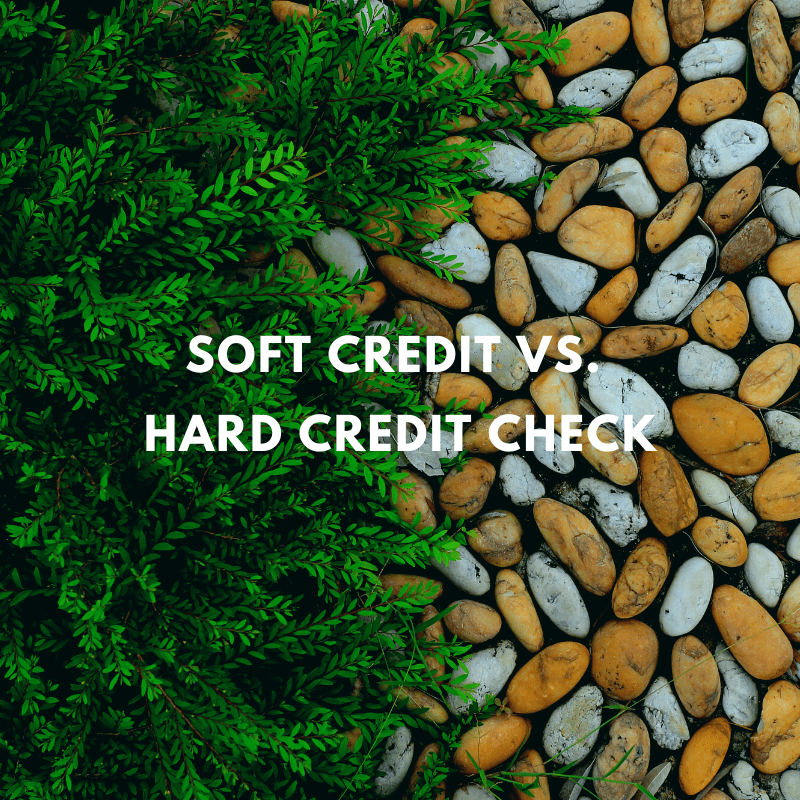Some people may question does opening a savings account affect your credit score? Quick answer, no, the act of opening a savings account will not affect your credit score.
Simply put, savings accounts are essential for storing away cash for your emergency fund and life goals. Maintaining a savings account and taking ownership of your credit score are important steps on the road to financial freedom.
And as you pursue those life goals, like owning a home, your credit score directly impacts how much money you can borrow and how much interest you’ll pay on a loan.
The better your credit score, the more money you’ll save over time. In this post, you will learn about the relationship between your savings account and your credit report.
Does A Savings Account Have An Affect on Credit Score?
In short, opening a savings account (or checking account) does not have a direct impact on your credit score. Your credit score is mostly impacted by other factors, such as debt.
If you have previously mismanaged a checking or savings account and were reported to a consumer reporting agency database such as ChexSystems this may then affect your credit score, but simply opening a savings account will not affect your credit score.
When you open a bank account, you’re typically the one adding money to the account. The financial institution isn’t giving you much, if anything, in return, other than access to your own money.
So, as long as you maintain a positive account balance and avoid late-payment penalties from your bank, you’ll be in good shape. You aren’t borrowing money, so there’s very little risk to the bank.
Is it possible for a bank account to hurt your credit?
The only situation where a checking or savings account could negatively impact your credit score is overdraft your account and fail to pay the bank back for an extended period.
If that happens, and if you don’t address the matter within a few months, the bank may close out your account and send the amounts owed to collections (which would likely hurt your credit score).
Believe it or not, this situation happened to one of our readers, who accidentally made an online purchase using an old checking account they forgot about.
The small purchase tipped their minuscule checking account balance into the negative. Then, the reader began to accrue overdraft fees for months until the bank closed their account. They weren’t receiving the bank’s notices, because they had moved.
This is why it’s so important to have a firm grasp on all of your accounts in addition to your daily spending and credit card purchases. We cannot emphasize this enough. One small mistake could put you in debt and impact your credit score for years to come.
How A Savings Account Can Help Your Credit Score
Your savings account doesn’t directly improve your credit score, however, with robust savings built up, you’ll be better positioned to make financial moves that improve your score.
Let’s look at two hypothetical friends: Joe and Mike.
Joe tends to take personal finance matters seriously and has $5,000 saved up in a high-yield savings account (HYSA). On the other hand, Mike doesn’t have any online savings accounts and has just $500 laying around in a traditional checking account.
If both Joe and Mike apply for the same loan, assuming all other financial variables are the same (income, other debts, and credit scores), the chances are that Joe would have a higher credit score, and therefore would pay less interest on the loan. How is that possible?
Because Joe has $5,000 extra saved up in his HYSA, he has more access to cash that can pay off any debt that he has, which should help his score. In turn, when lenders do a credit check, they are more likely to offer Joe a higher credit limit and better rates.
As you can see, it’s not the existence of a savings account that’s helping Joe’s credit score in the above situation. It’s the cash that Joe has saved up in that account that’s helping his score.
To be clear, if Joe had that same $5,000 saved in a checking account or money market account, his credit score would probably look the same.
The more money you have saved up, the better!
What Impacts Your Credit Score?
In most cases, your credit score only comes into play when a borrower applies for a credit card or a loan.
For example, if you apply for a car loan, the lender (or issuer) will generally make a hard inquiry on your credit history. This hard credit inquiry goes out to the three major credit bureaus (Equifax, Experian, and Transunion).
It provides the lender with information about your credit history, such as how much debt you have and what your payment history looks like on that debt. They will also see if you have good credit or bad credit, as determined by your FICO score and the other information that they glean from your credit profile. In the end, the lender decides how much money you’re qualified to borrow.
Generally speaking, if you have good credit, you’ll be able to borrow more money at a lower interest rate. From the standpoint of financial institutions, individuals with higher credit scores are at lower risk, which means they are more likely to pay the loan back on time.
Keep in mind that hard credit inquiries do have a temporary, negative impact on your credit score. If you’re thinking about applying for a mortgage in the next six months, you should probably hold off making any new credit inquiries.
Does Opening A Savings Account Affect Your Credit FAQs
Next, let’s answer some questions that we keep hearing from our readers.
Does having a savings account improve your credit?
Not directly. It’s all about what you do with the savings account. If you make smart financial decisions, save up a lot of money, and avoid debt, then that’s how your savings account can indirectly improve your credit. On the other hand, if you have $200 saved, this probably won’t impact your credit.
Do checking and savings accounts affect credit scores?
Yes and no. It helps to have both checking accounts and savings accounts in your financial tool belt. The more money you have saved up in those accounts, and the less debt you have elsewhere, the better chances you’ll have of achieving a favorable credit score.
On the flip side, if you frequently spend more than you earn, you’re more likely to experience overdraft fees, which can, over time, negatively impact your credit score by the financial institution reporting your account to Chexsystems.
Does having multiple savings accounts hurt your credit?
No. Having multiple savings accounts won’t hurt your credit. The only time that a savings account could negatively impact your credit score is if you somehow achieve a negative balance for an extended period (as described in the reader’s story above).
There are other types of accounts that hurt your credit if you have too many of them, so if you’re asking this question, this is probably something you’ll want to be mindful of.
For example, if you take out several personal loans, multiple loans from your credit union, or if you apply for several new credit cards in a short period, your FICO score is most likely going to suffer.
Having a Savings Account Can’t Hurt
Savings accounts are important to have, but in themselves, they don’t have a major impact on the credit scoring models that the major credit bureaus use.
Your savings account is more like a vehicle you can use to achieve a better credit score, but only if you choose to drive down the path of financial responsibility.
Wondering what your credit score is? Review our list of the best credit monitoring apps to get your free credit score.





Comments are closed.
Comments are closed here.